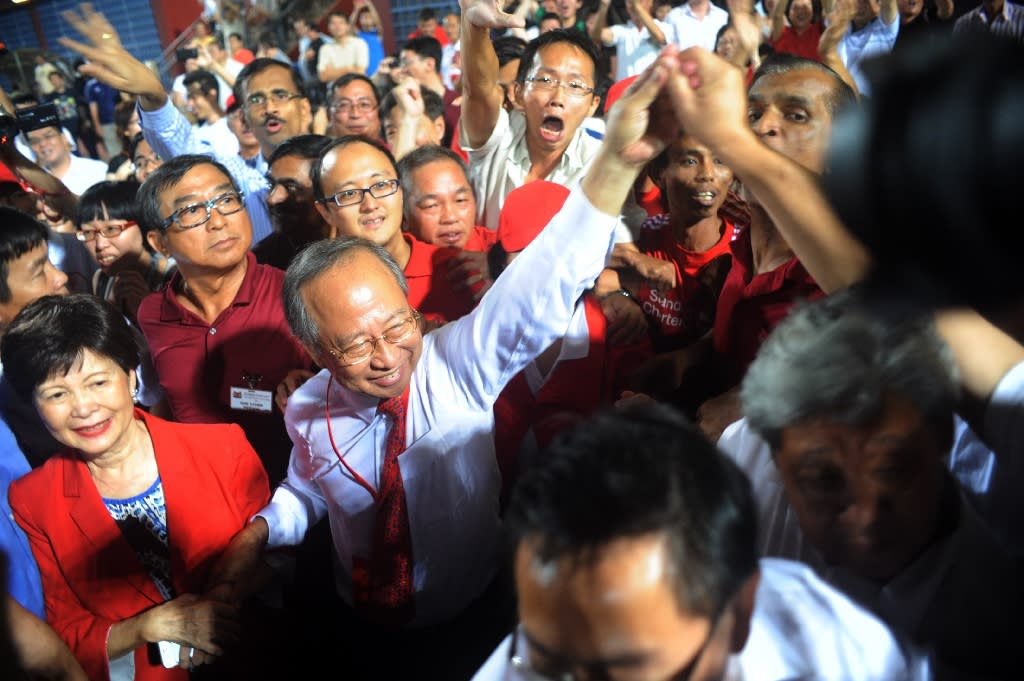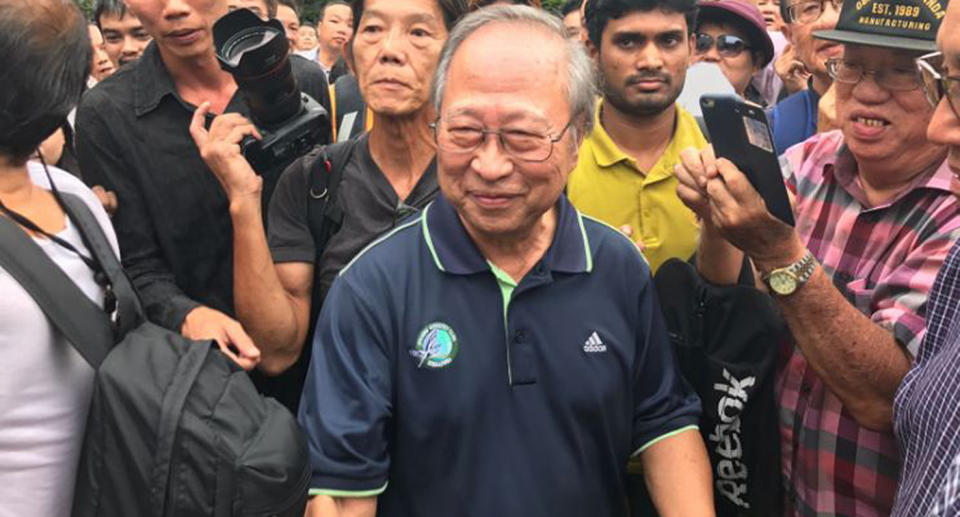COMMENT: What awaits Tan Cheng Bock?

After teasing Singaporeans for months, Tan Cheng Bock announced with an air of finality last Friday (18 January): “I have decided to return to politics after a long absence.” After the initial excitement and as the news began to sink in, the focus has been on the challenges ahead for the man who could have been President and who had spent nearly his entire political career with the ruling People’s Ruling Party (PAP).
Challenges there are many. Top-most is the make-up of the team he puts together. Its members must be mainly young, articulate, smart, savvy and display the ability to go for the long haul. Somewhat like former Workers’ Party (WP) chief Low Thia Khiang’s dream team gamble that created an electoral tremor in Aljunied GRC in 2011.
Tan’s team must also know what they are in for. The PAP is a mean machine that will fight for every vote, especially in this coming general election with its members knowing fully well that a new leadership is taking over and that this will be the last election Lee Hsien Loong is fighting as the sitting Prime Minister. He will surely want to leave the seat of power in a blaze of glory.
A mighty adversary

It must not be forgotten that this is a cash-rich government. It has the resources to throw money at a problem and convince voters that the PAP government is their saviour. It did that in 2015, after a damaging electoral clash in 2011, with its generous offer to take care of older Singaporeans’ healthcare needs via the Pioneer Generation Package.
This hit two targets at one go: the seniors, whose fears of high medical costs were allayed to a great extent, and their children, whose worries about paying for their parents’ medical bills were reduced. It showed that even the PAP government can shift its anti-welfarism ideology to suit its electoral needs. With a single-minded purpose, it pulled out all the stops to ensure that the WP’s wings were clipped in Aljunied and the opposition’s march further into the eastern part of Singapore was stunted.
PAP insiders say the ruling party is particularly wary of politicians whom they think will push for populist policies to win votes and those who have left the fold to form new political parties. Tan belongs to the second category and the PAP is not going to go easy on him.
Tan says some former PAP cadre members are joining his Progress Singapore Party. Some have equated this with a split in the ruling party. It is too early to say if this is so but there are other issues, two of them interconnected: The danger of groupthink and the possibility that some of these former cadres are joining Tan to settle scores with their former leaders. Both can scuttle Tan’s plan at the next GE as a more discerning population will want politicians to contest on a slate of bold ideas that will make Singapore a liveable city both in tangible and intangible ways.
One last job

At 78, Tan will inevitably face the issues of old age, the biggest of which is the stamina-sapping house visits. The good doctor is well aware of the effects of ageing; push too hard and allow it to take a toll on his health. On the other hand, the experienced politician knows if he takes a back seat it can disappoint voters.
Tan’s official entry into opposition politics is a welcome sign. His 26 years of experience as a PAP backbencher, his independence of mind even when he was with the ruling party, his near-miss in the 2011 Presidential Election (PE) and the way his move to take part in the next PE was thwarted make him not just a credible candidate, but also a desired one.
He also has another advantage: the PAP government is not the super efficient administration that it has made itself out to be. Just look at the Ministry of Health’s trail of missteps – from the way the 2016 Hepatitis C scandal came about and was tackled, the meagre $4.50 MediShield payout for a senior citizen’s $4,477 medical bill, the lackadaisical way in which some SingHealth staff handled Singapore’s biggest data breach and the hygiene lapses at the National Dental Centre.
These are all rich pickings and show there is something inherently wrong with a government that a population has trusted to deliver top-rate service.
The 2011 General Election showed that the PAP can be vulnerable. It is now up to Tan and his friends to show how much of a dent they can make on a party that has ruled Singapore for 60 long years.
P N Balji is a veteran Singaporean journalist who was formerly chief editor of Today, as well as an editor at The New Paper. He is currently a media consultant. The views expressed are his own.
Related stories:
COMMENT: How Heng Swee Keat can return the favour to PAP cadres
Tan Cheng Bock, Lee Hsien Yang seen having breakfast at hawker centre
COMMENT: Singapore presidency with an asterisk and a government that was blindsided



